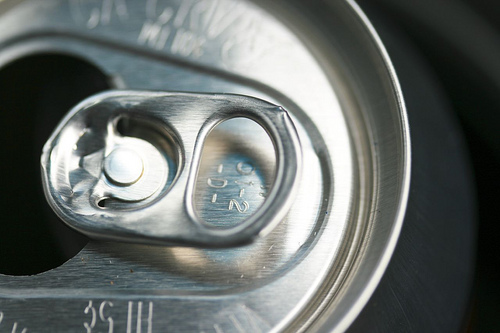Introduction:
Many people consume artificial sweeteners, especially in “diet” soft drinks, thinking it will help them reduce calories and lose weight. However, numerous studies over the years have challenged this conventional wisdom. In fact, the latest evaluation of the data indicates that consuming artificial sweeteners actually promotes weight gain.
Background Data:
There are six approved artificial sweeteners in use in the United States: sucralose, aspartame, saccharin, acesulfame potassium, neotame and advantame. Although these sweeteners do not impact blood sugar levels directly, data from several population-based studies have found that consumption of artificial sweeteners, mainly in diet sodas, is linked to development of weight gain, metabolic syndrome, and even type 2 diabetes.
There is also a growing amount of scientific data that shows that these artificial sweeteners are not inert ingredients that do not affect human metabolism or body processes. In fact, there are valid mechanisms that now explain why these artificial sweeteners promote poor health outcomes.
New Data:
An article published in the medical journal Physiology & Behavior on June 19, 2015, detailed how artificial sweeteners promote metabolic dysregulation. Three key mechanisms were highlighted:
- Artificial sweeteners interfere with learned responses that contribute to controlling appetite and blood sugar levels.
- Artificial sweeteners increase the number and activity of receptors that transport glucose from the gastrointestinal tract, thereby stressing blood sugar control mechanisms.
- Artificial sweeteners disrupt the human gut microflora in a manner that promotes insulin resistance and glucose intolerance.
Of these mechanisms, the one that is most intriguing is perhaps the impact that artificial sweeteners have in alteration of the gut bacterial flora (human microbiome) in a manner that ultimately leads to insulin resistance. With insulin resistance comes reduced activity of intracellular enzymes throughout the body that ultimately lead to loss of appetite control, weight gain, increased abdominal obesity, and the subsequent development of the metabolic syndrome and eventually type 2 diabetes.
Animal studies have convincingly shown the link to the artificial sweeteners causing their adverse effects on insulin sensitivity by including a group also receiving an antibiotic with the artificial sweeteners.
Human clinical studies with moderate exposure to artificial sweeteners (dose equivalent to human subjects consuming approximately 2–3 diet soft drinks per day) show them to disrupt the gut microflora and cause increased fasting blood sugar levels presumably in the same manner as the animal studies.
How does the change in gut microbiome lead to insulin resistance? Researchers have been able to show the change in gut flora leads to an increased absorption of glucose from the diet. That alone may explain the development of insulin resistance, but there are undoubtedly other mechanisms involved (please see my newsletter, Probiotic Supplementation Promotes Weight Loss for more information).
Commentary:
My takeaway message from the data on artificial sweeteners is that they are indeed adding fuel to the fire. Stay away from them.
What about natural low or zero calorie sweeteners? They do not appear to negatively affect the gut flora. In fact, they appear to support a healthy microbiome, especially the polyols like xylitol. Here is a quick overview of natural sweeteners to use in place of artificial sweeteners:
Stevia: Extracted from the Stevia rebaudiana plant, stevia glycosides are 300 times sweeter than sucrose. Preliminary studies show that stevia may have blood sugar lowering and blood pressure lowering effects. It does exert a mild to unpleasant aftertaste depending upon purity.
Luo han guo (monk fruit): The fruit extract from this plant native to southern China is nearly 300 times sweeter than sugar and has been used as a natural sweetener in China for nearly 1,000 years. Has less of an aftertaste than stevia.
Xylitol and other polyols (maltitol, sorbitol, mannitol, erythritol): Polyols are roughly 60% as sweet as sucrose. They are poorly absorbed from the intestinal tract so larger amounts, for example, a single intake of more than 10 to 30 g, or a total daily intake of more than 40 to 80 g, may produce a laxative effect. Polyols are often combined with stevia or monk fruit extract to reduce aftertaste as well as to provide some bulk.
Reference:
Pepino MY. Metabolic effects of non-nutritive sweeteners. Physiol Behav. 2015 Jun 19. pii: S0031-9384(15)00372-8. [Epub ahead of print]
Dr. Michael Murray
9/23/15




